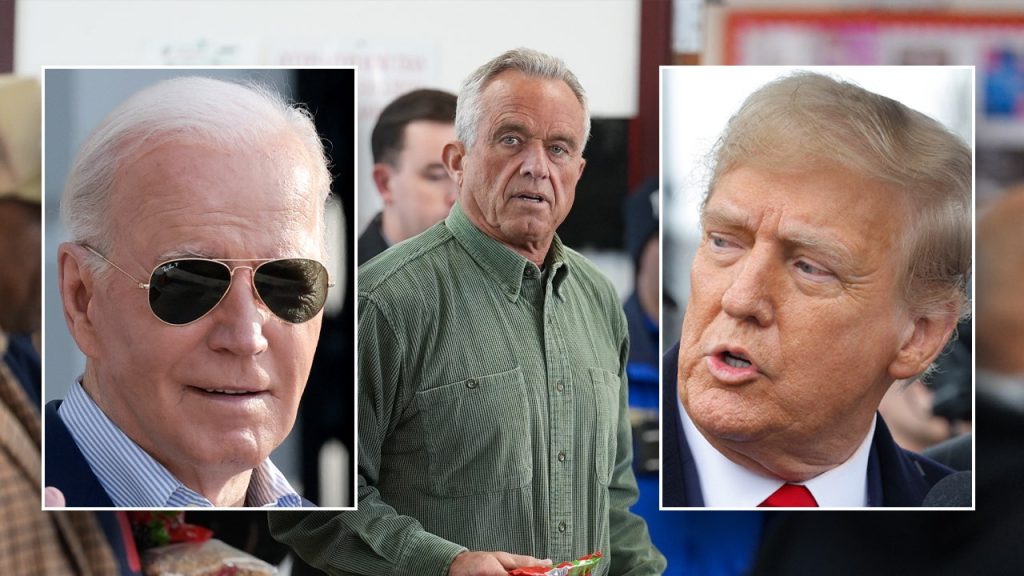Democrats and Republicans are working hard to define Robert F. Kennedy Jr.’s independent presidential bid before he has a chance to introduce himself to the 2024 electorate. Despite primarily campaigning to gain ballot access rather than in critical battleground states like former President Trump and President Biden, Kennedy’s bid is still facing challenges from both sides. Trump has labeled him as “the most Radical Left Candidate in the race,” while Democrats accuse him of being a Trump stalking horse. The Democratic National Committee has even established a staff specifically to address third-party competitors.
According to historian Allan Lichtman, Kennedy’s support may come simply from his famous name rather than an understanding of his beliefs. Kyle Kondik of Sabato’s Crystal Ball at the University of Virginia Center for Politics noted that Kennedy’s opinions appear to span both left and right ideologies, making him difficult to categorize. Russell Verney, a former adviser to Ross Perot’s independent presidential campaign, believes that both parties are threatened by competition from Kennedy, with Democratic strategist Kaivan Shroff suggesting that Democrats could frame Kennedy as a “Disney villain” with a vendetta against the Democratic Party.
Republican strategists see a greater threat to Biden due to his “fragile” support and Kennedy’s association with the Democratic legacy of his family. GOP strategist Zack Roday believes that it will take a significant amount of money and a strong plan for Biden to combat this threat. While some suggest that Kennedy could draw support from “double-haters” displeased with both Trump and Biden, others warn of the traditional “wasted vote syndrome” that tends to undercut independent candidates on Election Day. Kennedy’s campaign press secretary Stefanie Spear claims that attacks from both sides stem from a misunderstanding of a candidate who does not fit traditional political categories.
Historically, independent candidates tend to lose support on Election Day compared to their polling standing due to the wasted vote syndrome. Jacob Neiheisel of SUNY Buffalo notes that third-party voters are more likely to sit out voting if their preferred candidate is not an option. Bernard Tamas of Valdosta State University highlights the challenge in maintaining a consistent and cohesive message to attract and retain voters. Ultimately, the success of Kennedy’s campaign will depend on effective communication and messaging, with Biden currently holding an advantage thanks to support from figures like former presidents Bill Clinton and Barack Obama. Trump has continued to label Kennedy as a “radical leftist,” while the Biden campaign did not provide comment and referred inquiries to the DNC’s third-party operation.
In conclusion, Robert F. Kennedy Jr.’s independent presidential bid is facing challenges from both Democrats and Republicans as they attempt to define and undermine his candidacy. Despite his famous name and ambiguous political beliefs, Kennedy’s campaign is aiming to attract a broad coalition of voters who are disillusioned with traditional party politics. The success of his campaign will depend on effective communication, messaging, and the ability to combat the wasted vote syndrome that tends to hurt independent candidates on Election Day. As the 2024 election approaches, the battle to define Kennedy’s candidacy will continue to play out on the political stage.















